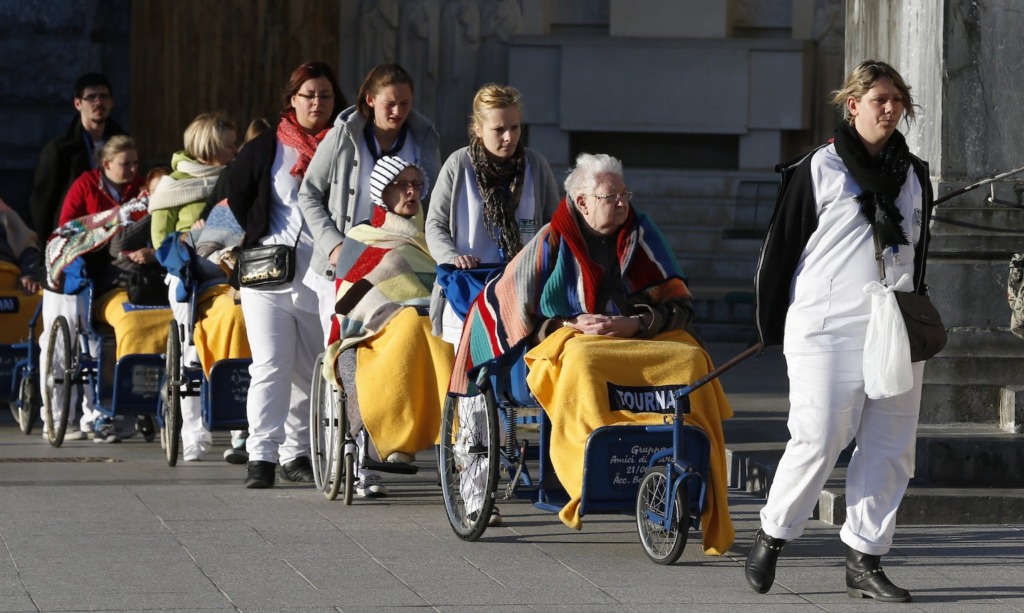Asking for help, learning to lean as others lean on you
Lately I note a trend on social media, among my peers of a certain age. Amid the cute grandbaby pictures there were pleas for intercessory prayer for their aging parents.
Going home to visit can be a real wakeup call as we realize that – seemingly overnight – our strong, independent parents need our help.
This topic hits home for me. After years of caregiving during their protracted illnesses, I’ve recently bid farewell to both of my parents. Unexpected waves of grief and moments of regret hit me like a gut punch when I least expect them.
In a very real sense, caregiving for my parents was my life’s greatest privilege, but it came with a price and trials that very nearly did me in spiritually, emotionally and physically.
I’m part of the new generation of seniors who – while only just adjusting to our own aging – are being asked to care for our parents while often serving as caretakers for our grandchildren, as well.
Their parents, our children, often need two incomes just to make ends meet, so some of us are now packing school lunches for our grandchildren while arranging medical appointments for our parents.
In some ways, we are not unique, but Mom didn’t jump on Instagram to vent about the challenges of taking in her elderly mother while still actively parenting my youngest sibling.
In those years, I unthinkingly added to her load by having her watch my then-toddler so I could enjoy a “Mom’s Night Out.” Looking back, I realize now that she never refused, even though her stress was undoubtedly getting the better of her.
Without words, she modeled for me the caregiver’s journey.
I won’t pretend to have any wisdom about how one should answer an unexpected (but vocational) call to caregiving, but now – as I walk alongside my husband as he takes on the care of his parents – I realize one great lesson I learned with Mom and Daddy that is helping me to be a better partner to him in this process: the importance of a trusted companion.
It is a gift just to have an assurance that someone can be trusted to walk this path, full of so many unknowns.
While re-reading my journals from those long days of caretaking, I came across an apt quote I’d transcribed from Rosalynn Carter.
“There are only four kinds of people in the world. Those who have been caregivers. Those who are currently caregivers. Those who will be caregivers, and those who will need a caregiver.”
Every family will have to address distinctly challenging logistics for themselves. But if we have a loved one in need of care, we are caregivers.
My instinct is to be unwilling to be a bother to others, and I too often try to cope with stressful circumstances on my own, but when taking care of my parents I worked overtime to communicate with my siblings and my husband. It made a difference to know that I was not alone in the process.
Still, early in my caregiving journey, I recognized the very real impact my new role was having on our marriage. Now, accompanying my husband as he enters a more intense phase of parental care, I am there for him, because I see how much his support meant to me.
Along with his companionship, I relied upon the compassion of friends and learned hard lessons about patience and trusting God’s perfect will.
I often prayed over the passage of John’s Gospel where Jesus entrusted John with the caregiving of his own mother (Jn 19:26-27), because the caregiver’s path is one best walked in the company of others. Our Lord must have known that, when he gave his mother into the care of his beloved disciple, and him into hers.
My darkest days came when I allowed myself to succumb to the isolation that can so easily imprison caregivers. Light and hope finally returned when I learned to graciously ask for and accept help.
It is the great takeaway lesson of caregiving: Never be afraid to ask for help from heaven or to lean into the support of your companions on earth.

